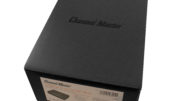So the other day, a customer asks if he can get a “world TV tuner.” He takes his yacht to many different countries and would like to avail himself of the local programming options. Hey, I have to respect a fellow TV antenna enthusiast, right?
The problem is, there isn’t one box that can do it all. It’s not a technological problem — our partner Televes offers signal meters that can test for every single type of TV signal and even show you them on the screen. But when it comes to a device that can sit in an entertainment system rack, it turns out no one has built one.

I think the problem isn’t low demand, it’s sort of “middle demand.” When you look at Televes’ H60 meter, the device I was talking about, it can decode TV signals, cable signals, and satellite signals from all sorts of countries. It makes sense for the folks at Televes to develop one piece of hardware that works in every country, since this is a professional piece of hardware that costs about $8,000. The demand for professional-level equipment in that range isn’t very high, so it doesn’t make sense to make different meters for different countries.
On the other hand, the demand for television tuners is pretty high. In fact every TV has one, every cable system has hundreds, and a satellite provider like DIRECTV has thousands. There are plenty of people who buy standalone tuners for a variety of reasons, and so they’re built in high quantities.
However, there’s practically no demand for a single tuner that can decode the NTSC, ATSC, PAL, DVB-T, and DVB-T2 signals used across the world on varying frequency ranges. Even if you travel from country to country, for example from the US to Canada or from France to Spain, you’re generally using the same system. In order to really need something that tunes multiple systems, you would need to be like this customer, a globetrotting antenna enthusiast.
While the tech obviously exists, the issue is cost and profits, really. If you built a device that got every signal it would probably cost about $20,000 and would perform similar to two different devices that together cost about $2,000. Most people aren’t going to pay 10 times the price for just a little more convenience, sadly.





